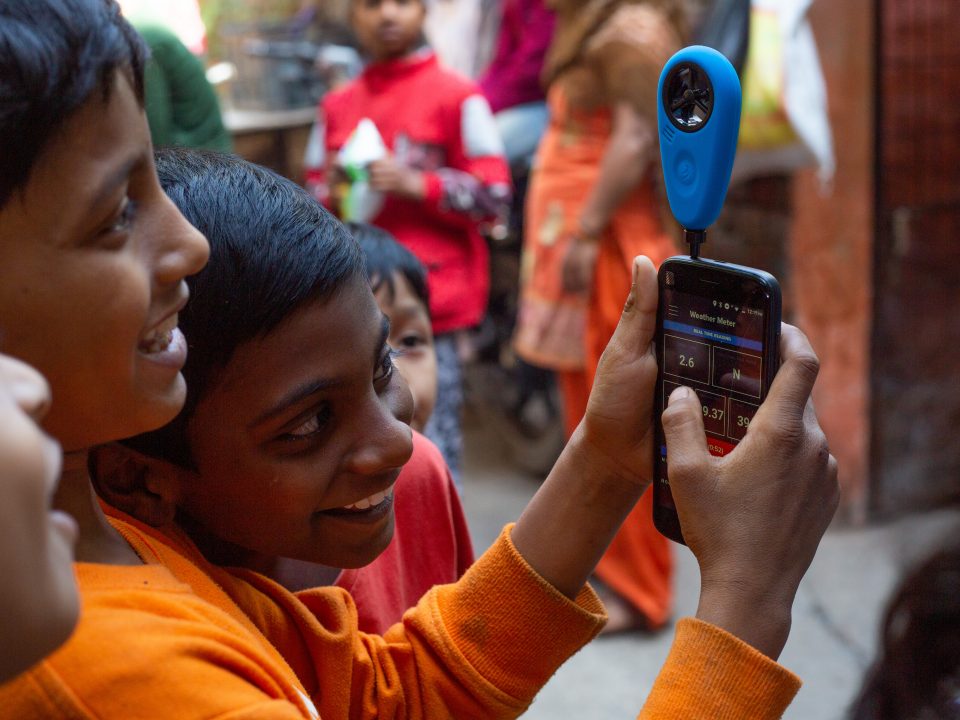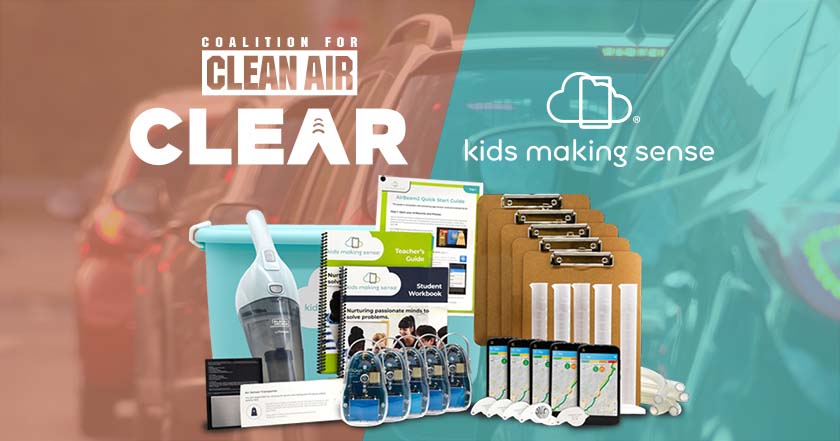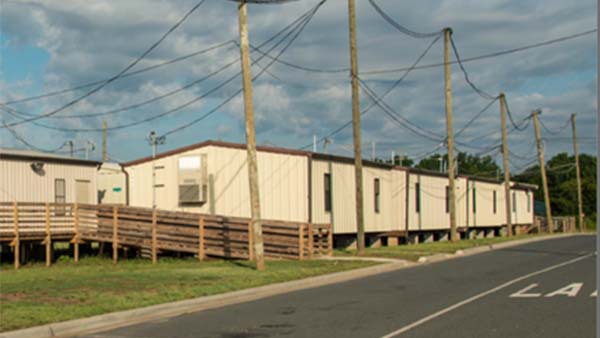
Air Quality Science Experiment Inside Portable Classrooms
July 8, 2022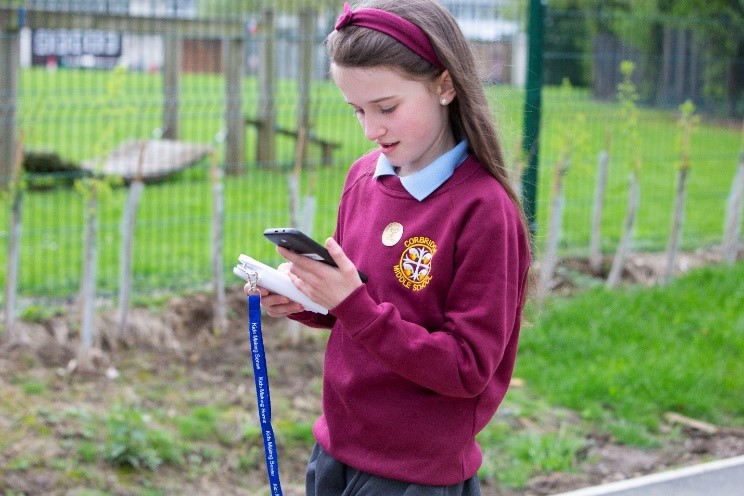
Students Use Kids Making Sense Air Sensors to Learn about Climate Change and Air Quality
November 17, 2022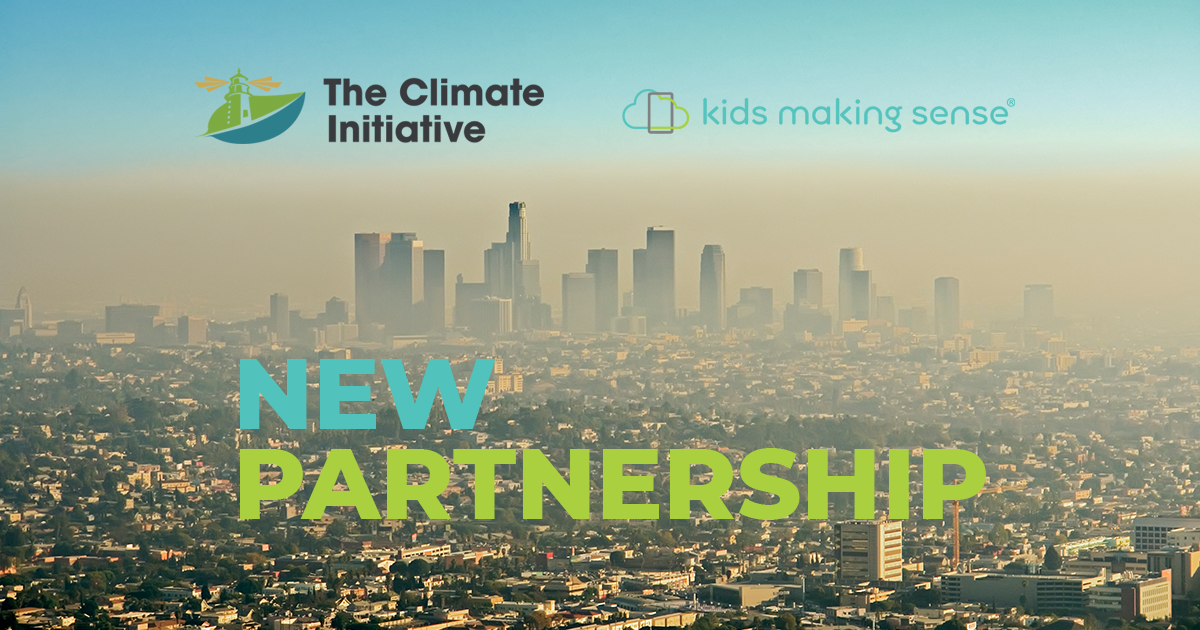
Empowering the Next Generation of Youth Leaders through STEM and Community Action
The next generation of leaders must develop strong critical thinking, problem-solving, and communication skills to guide their communities towards a sustainable and equitable future. STEM-based education helps students to develop these skills and encourages creativity and media/technological literacy, all of which are now necessary for success. STEM education also allows students to work collaboratively to identify problems and develop solutions.
The Climate Initiative aims to empower young voices in their call for climate action. We recognize that some students don’t have equal access to the resources and opportunities necessary for their fullest development and success. In particular, youth in low-income school districts often do not have sufficient resources and technology to engage in STEM activities, which can lead to disinterest in the STEM fields.
Such inequitable opportunities in school have direct implications for low-income black, indigenous, and people of color (BIPOC) students’ social mobility and economic equality–especially within the growing field STEM careers, where black and Latin workers are underrepresented. The Pew Research Center found that black workers represented just 9% of all STEM workers in 2021, while Latin workers made up only 8% during the same year. This data highlights the need for more BIPOC youth engagement in STEM and interdisciplinary learning. Whether or not young people pursue a career in STEM, the skills they acquire from engaging in these educational activities will set them up for success.
For this reason, The Climate Initiative has partnered with Kids Making Sense to provide 20 educators in under-resourced communities with air quality kits for their classrooms through the Air Quality Action Project Program. Kids Making Sense, an educational program developed by scientists at Sonoma Technology, unites STEM education with a complete measurement and environmental education curriculum. Kids Making Sense teaches students in grades 6-12 about monitoring and improving air quality in their communities. In this unique program, students learn about particle pollution, its sources, and the associated health effects through engaging lessons that use handheld, low-cost air sensors paired with a smartphone app to measure air quality around their schools and local communities. Data collected are crowdsourced on a mapping website for discussion and interpretation, and students learn about pollution-control actions and how to support them.
The Air Quality Action Project Program aims to connect under-resourced youth with technology that will help them engage in data collection and analysis, place-based learning, and community-based action. It is open to high school educators in California, Oregon, Washington, Arizona, and Nevada, particularly in areas with high levels of air pollution.
The Air Quality Action Project Program will engage students in air quality education and data collection. Students will then lead a community-based action project informed by the data they gathered. The action project can focus on community education, mitigation or adaptation solutions, policy initiatives, or hosting a Community Conversation. Students are encouraged to be innovative and draw from their lived experiences and sociocultural backgrounds to initiate unique projects and create something impactful.
Low-income and BIPOC communities are at the forefront of environmental impacts despite being the least responsible for the degradation of the environment. As such, they should be at the forefront of solutions that restore balance and bring justice to their communities. To this end, the Air Quality Action Project Program seeks to support developing students and showcase youth as leaders at the forefront of change and action in their communities. We must empower all young people by providing access to resources and opportunities to develop essential skills that will facilitate their growth as the next generation of leaders and agents of change.
Interested in the Air Quality Action Project Program? Visit The Climate Initiative to learn more and apply.


